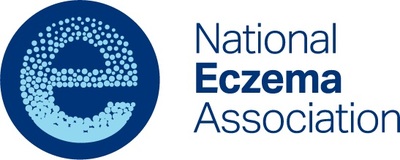The National Eczema Association (NEA) today announced the publication of its new research revealing the importance of shared decision making between patients and healthcare providers in the treatment of eczema.
|
Findings Reveal Collaboration with Doctors Correlates With Higher Patient Care Satisfaction NOVATO, Calif., July 6, 2022 /PRNewswire/ -- The National Eczema Association (NEA) today announced the publication of its new research revealing the importance of shared decision making between patients and healthcare providers in the treatment of eczema. An estimated 31 million Americans live with eczema, a disease without a known cause or cure that affects everyone differently. Choosing the right treatment for eczema is challenging – for both patients and providers – due to the highly variable nature of the disease. There are also many new treatments for eczema available, with more in development, increasing the need for collaboration between healthcare providers and patients when discussing and deciding on treatment options. Until now, there has not been a clear understanding of the extent to which patients with eczema provide input into their own treatment and factors that contribute to positive care conversations. The NEA research team set out to answer these questions with a survey of its eczema patient and caregiver community. The findings, analyzed in collaboration with researchers Emile Latour, MS (Biostatistics Shared Resource, Knight Cancer Institute, Oregon Health & Science University) and Erin Foster, MD, PhD (Center for Health & Healing, Oregon Health & Science University) have been published (in part) in JAMA Dermatology. Shared decision making is a practice in which a healthcare provider works with a patient or caregiver to incorporate their unique preferences and values into decisions about medically appropriate treatment options. The process of shared decision making can help patients understand and choose treatments that align with their personal needs. Prior research about shared decision making in other chronic diseases have found it to be a valuable approach to increase patient satisfaction during consultations and adherence to treatment regimens. Another study in the U.S. also found a correlation between poor shared decision making and poor patient-reported outcomes. From the survey results of 1,313 patients and caregivers, investigators found that a "higher degree of involvement in shared decision making was significantly associated with higher consultation satisfaction." Upon further analysis, they also determined that "self-reported knowledge about the causes of eczema was associated with past and future shared decision making" and that "severity of the disease was inversely associated with past shared decision making behavior." In regard to current shared decision making processes, 49.6% of respondents state they prefer to make their own decision after considering the doctor's opinion and 69.4% report being very likely to engage in shared decision making in the future. These findings confirm an important role for shared decision making for improving patient satisfaction with their care. Furthermore, those who reported feeling "very well informed" about eczema causes were 3.4 times more likely to be confident to engage in future shared decision making. Healthcare providers have a unique opportunity to facilitate shared decision making in care settings by empowering patients and caregivers to make decisions and incorporating education about eczema and its causes into patient interactions. These new survey results demonstrated that a higher degree of patient involvement in eczema shared decision making was associated with higher levels of consultation satisfaction and provided a strong foundation for engagement in shared decision making to additionally foster adherence to treatment plans and control of the condition itself. One notable gap identified in the study, however, is between patient and healthcare provider perception of how much shared decision making occurred as previous, non-eczema-related studies report disparate results between the two groups. Future studies are underway and will explore aspects of the patient-provider relationship. Additional findings and insights from this study are expected to be published soon. For more information about this study and other research conducted by NEA, visit: NationalEczema.org/surveys. About the National Eczema Association
Founded in 1988, the National Eczema Association (NEA) is a 501(c)(3) nonprofit and the largest patient advocacy organization serving the over 31 million Americans who live with eczema and those who care for them. NEA provides programs and resources to elevate the diverse lived experience of eczema, and help patients and caregivers understand their disease, actively engage in their care, find strength in one another – and improve their lives. Additionally, NEA advances critical eczema research and partners with key stakeholders to ensure the patient voice is represented and valued in education, care and treatment decision-making. The eczema community is at an exciting juncture, with increased recognition of the seriousness and burden of eczema and a surge in scientific interest and development of new treatments. Bolstered by NEA's strategic plan, Blueprint 2025, we are driving toward the ultimate vision: a world without eczema. Learn more at NationalEczema.org.
SOURCE National Eczema Association |





